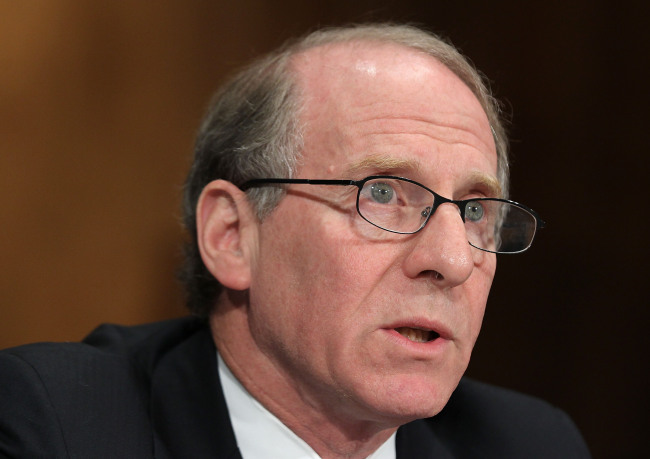 |
| [사진=게티이미지] |
By Jaeyeon Moon
“It‘s important to say that to simply recognize dismantlement of this or that facility or complex, however welcomed it would be, is not the same as denuclearization,” said Richard Haass, the president of the Councile on Foreign Relations(CFR) of the United States.
A former senior official in the George H.W. Bush administration and author of ‘A World in Disarray - American Foreign Policy and The Crisis of the Old Order’ joined the interview with the Herald Business on Tuesday to discuss the potential rift in ROK(Republic of Korea)-U.S. relations as dialogue for denuclearization and peace in Korean peninsula takes place. Interview has taken place during his stay in Seoul for the 11th Council of Councils regional conference.
Haass said dismantelment of the Yongbyon nuclear facility or either other facility can not be simply described as denuclearization. “It’s not even necessarily a milestone to the way of denuclearization. We don’t know that,” he said. “For all we know, North Korea could agreed to do such things as an alternative to denuclearization, we don’t know that.”
U.S. Secretary of State Mike Pompeo on Monday hailed “significant progress” in talks with North Korean leader Kim Jong Un at the weekend. However, experts questioned North Korean leader’s intention and said he is simply repackaging and dragging out past pledges.
Haas said Kim Jong Un is different from his father and grandfather - Kim Jong Il and Kim Il Sung - in terms of tactics and approachs, but not clear he is different in the bottom line. “The real question is: is he willing to give up nuclear weapons, missiles, and artillery in exchange for all source of economic normacy or does he want both,” Haass said. “I think he wants both. Others think he wants to trade. We need to structure our process where we find out.”
Haass also underlined the ‘rock-solid’ alliance between the U.S. and South Korea. He said it is critical for two allies to stay close and address any potential or existing differences. “We don‘t want one set of interest go ahead of the other,” he said. “And we need to keep pressure on North Korea, so we have to be selective on any normalization that affects not only the South but also China and Russia. This will be one of the issues. How does one sequence North Korean steps with any relaxation of economic pressure? How do we sequence North Korea’s step with any introduction of economic normalization? That is a big question for the United States and South Korea.”
South Korea officially agrees with the United States that it should not improve ties with North Korea too fast without progress in the denuclearization of the North. But there have been subtle differenences between the allies over the pace of inter-Korean engagement. Washington remains focused on enforcing sanctions, while Seoul seeks to expand inter-Korean ties as a means to lure North Korea into denuclearization. Foreign Minister Kang Kyung-wha said on Wednesday that government agencies are discussing lifting its embargo against North Korea that was imposed in 2010. However, this alarmed the Trump administration which considers its sanctions as the most potential leverage against the North. Minister Kang and the government backtracked the stance after President of the United States Donald Trump made a blunt remark that Seoul cannot do anything without Washington’s “approval.”
“One of the real challenges for both Washington and Seoul would be, to use in American expression, ‘stay on the same pages.’ Indeed, the focus on denuclearization has within it, a potential of just that because the emphasis on denuclearization deals with nuclear weapons and delivery systems, but it doesn‘t put equal empahsis on a coventional military threat cause by North Korea,” said Haass. “There is a question up again: Can the U.S. and South Korea agree on what our objectives are? And can we agree on what is prepared to offer in exchange for realizing the objectives? This would be a real task of our bilateral relationship on diplomacy, we want to avoid surprising one another an that applies as much as to the U.S. as it does to South Korea.”
He also underlined the importance of ‘down-top’ approach to talk about the specifics of denuclearization. President Moon and his administration have been pushing ‘top-down’ approach, which negotiations take place via presidential summits, to sustain diplomacy in the Korean peninsula. President Moon Jae-in, during his speech last month at a conference co-hosted by CFR, Asian Society(AS), and Korean Society(KS), stated that top-down approach where the heads of state reach broad agreement on the issues and “direct traffic” is an effective method of breaking the deadlock.
“At some point you have to bring the talks down to specifics. This is why we need experts,” Haass said. “No president can be expected to know all the details about nuclear facilities, or military arms, or missiles. So you have to deal on both levels.”
Stressing the importance of specifics and details in denuclearization, he added:“Before we start taking steps with North Korea, and the process breaks down, we don’t want to be worse off at the point. We want to structure this and create the possibility of moving forward, but we want to protect ourselves against the possibility that we will be unable to move forward.” He also said, “There is an English expression ‘Devil lives in details.’ Some people are cautiously opimistic and some are somewhat skeptical. Given the nature of diplomacy, we have to be realistic.”
munjae@heraldcorp.com